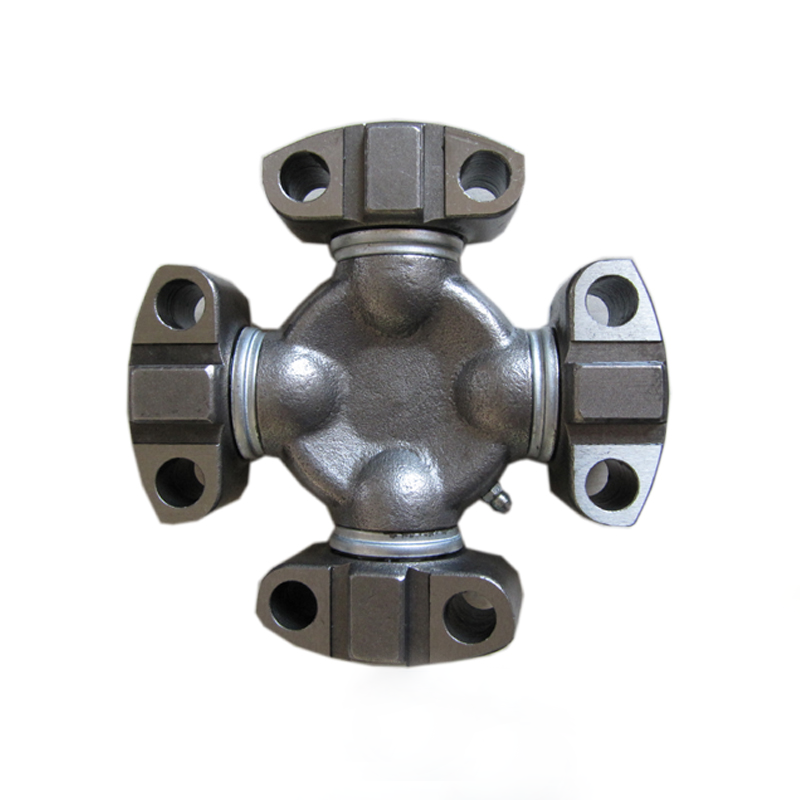When evaluating torque transmission methods, the key and slot mechanism in wing bearings stands out for its unique blend of performance and reliability. This method is commonly seen in universal joints with wing bearings, where torque is transferred through mechanical allowance using keys placed on bearing blocks. These keys fit into corresponding slots machined on the connecting yokes, ensuring a secure and efficient transfer of power. Comparing this system to other torque transmission methods, such as splined shafts and various couplings, reveals distinct advantages and some limitations.
In terms of performance, the key and slot mechanism excels in efficiency. The snug fit between keys and slots ensures minimal slippage, allowing for nearly direct transmission of torque with little energy loss. This is particularly beneficial in applications where precision and power efficiency are paramount. Similar to splined shafts, which also offer high efficiency due to their multiple contact points, the key and slot system provides a reliable means of distributing torque evenly across the connection. Unlike some flexible couplings, which might introduce minor losses to accommodate misalignment, the key and slot method maintains a solid and direct connection, maximizing torque transfer.
Another significant advantage of the key and slot mechanism is its ability to handle varying loads and shock loads effectively. The robust mechanical connection created by the keys fitting into the slots can withstand sudden changes in load without significant deformation or wear. This makes it particularly suitable for applications such as automotive driveshafts, industrial machinery, and heavy equipment, where load variations are common. While splined shafts also manage high and varying loads effectively due to their design, they lack the simplicity and robustness of the key and slot mechanism. Rigid couplings, on the other hand, are less adaptable to shock loads and can suffer from stress-related failures under such conditions, making them less reliable for these demanding applications.

However, the key and slot mechanism does require precise alignment for optimal performance. Misalignment can lead to uneven load distribution and accelerated wear, necessitating regular maintenance to ensure long-term reliability. Proper lubrication and periodic inspection of the keys and slots are essential to prevent corrosion and maintain the integrity of the connection. Splined shafts share this need for precision and maintenance, as they also rely on a tight fit to distribute torque effectively. In contrast, flexible couplings offer greater tolerance to misalignment, accommodating axial, angular, and parallel misalignments without sacrificing performance. This flexibility makes them versatile but often at the expense of direct torque transfer efficiency and potentially higher wear rates under continuous load variations.
The reliability of the key and slot mechanism is another strong point. When properly maintained, these joints are highly durable, with the keys and slots typically made from hardened materials to resist wear and deformation. This durability is crucial in applications subject to continuous or shock loads, where the mechanical integrity of the connection is constantly tested. Compared to splined shafts, which are equally durable but may suffer from spline wear and fretting corrosion, the key and slot mechanism offers a simpler yet robust solution. Maintenance requirements for rigid couplings are minimal but their inability to accommodate misalignment can lead to stress failures. Flexible couplings, though easier to maintain in terms of alignment, may require more frequent replacement of their flexible elements due to fatigue.
Universal joints with wing bearings leverage the key and slot mechanism to provide a high-performance, reliable solution for torque transmission in demanding environments. Their ability to handle significant load variations and shocks, coupled with efficient torque transfer, makes them ideal for a wide range of applications. While they do require precise alignment and regular maintenance, the benefits they offer in terms of performance and durability are substantial.
In conclusion, the key and slot mechanism in wing bearings compares favorably to other torque transmission methods in terms of performance and reliability. Its robust design ensures efficient torque transfer and excellent load-handling capabilities, making it particularly advantageous in applications with variable or shock loads. Although it necessitates careful alignment and ongoing maintenance, the long-term benefits in terms of durability and operational efficiency make it a preferred choice in many industrial and automotive applications.

 English
English Español
Español 中文简体
中文简体

















Contact Us